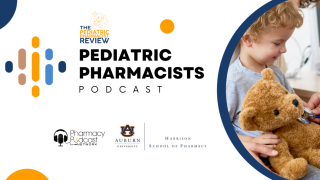Children's COVID-19 Vaccination Guidance Revised by the WHO

The World Health Organization (WHO) published revised COVID-19 vaccination advice for children and adolescents on June 22, 2021. The WHO's website now states, 'the WHO and partners are working together on the COVID-19 pandemic response ... and are racing to develop and deploy safe and effective vaccines.'
The WHO has modified its statement published on June 21st: Children should not be vaccinated for the moment.
The WHO's website now says 'COVID-19 vaccines are safe for most people 18 years and older, including those with pre-existing conditions of any kind, including auto-immune disorders. These conditions include hypertension, diabetes, asthma, pulmonary, liver, kidney disease, and chronic infections that are stable and controlled.
If supplies are limited in your area, discuss your situation with your care provider if you a.) have a compromised immune system, b.) Are pregnant (if you are already breastfeeding, you should continue after vaccination), c.) Have a history of severe allergies, particularly to a vaccine (or any of the ingredients in the vaccine), and d.) Are severely frail.'
'Children and adolescents tend to have the milder disease than adults, so unless they are part of a group at higher risk of severe COVID-19, it is less urgent to vaccinate them than older people, those with chronic health conditions, and health workers.'
However, 'more evidence is needed on the use of the different COVID-19 vaccines in children to be able to make general recommendations on vaccinating children against COVID-19.'
The WHO's Strategic Advisory Group of Experts (SAGE) has recently concluded that the Pfizer- BionTech (Comirnaty) vaccine is suitable for use by people aged 12 years and above. Therefore, children aged between 12 and 15 who are at high risk may be offered this vaccine alongside other priority groups for vaccination. Vaccine trials for children are ongoing, and WHO will update its recommendations when the evidence or epidemiological situation warrants a policy change.
If you experience an immediate severe allergic reaction to a first dose of the COVID-19 vaccine, you should not receive additional doses of the vaccine. It’s extremely rare for severe health reactions to be directly caused by vaccines, says the SAGE.
Moreover, the WHO reaffirms, 'It's important for children to continue to have the recommended childhood vaccines.'
Note: As of June 9, 2021, the United Kingdom Medicines & Healthcare Regulatory Agency (MHRA) had received 421 Yellow Card reports of suspected adverse drug reactions to the Pfizer-BioNTech vaccine in which the patient died shortly after vaccination; 39 reports of myocarditis, 27 reports of pericarditis; 376 spontaneous adverse reactions associated with anaphylaxis or anaphylactoid reactions. The nature and frequency of these reports are in line with that reported in previous updates, says the MHRA.
Our Trust Standards: Medical Advisory Committee























